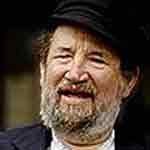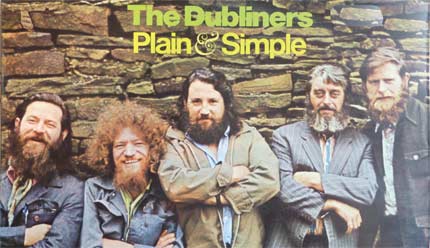
I was shocked and so sad to hear of the death of the great Barney McKenna.
I grew up listening to him. He and The Dubliners helped to create and shape my love for Irish music. It’s perhaps hard to imagine the kind of impact The Dubliners had on the world way back in the 1960s.
Nowadays, we take it for granted that Irish folk music is well respected and has fans all across the world.
It wasn’t always like that. At the start of the 1960s, Irish folk music was thought of as old fashioned and dull.
For most people, Irish music meant Paddy McGinty’s Goat, or perhaps an over-sentimental version of Mountains of Mourne or Galway Bay.
Barney and Dubliners at forefront of folk revival
The folk revival changed all that – and The Dubliners with Barney McKenna were right at the forefront of that change.
They swept through the folk scene like a whirlwind. They had no time for the folk purists of the day and reached out to a new and broader audience. They appeared on pop programmes and had top ten hits. Not only that, they could be a bit risqué, singing bawdy songs like Seven Drunken Nights on TV and having major hits with them.
They had long hair and beards. The Dubliners were cool and they made it fashionable again to like Irish music. They didn’t do it all on their own. The Clancy Brothers and Tommy Makem also played a major part.
The two bands were very different though: The Clancys were smooth and highly polished showbiz performers; The Dubliners were more like rough diamonds – a little irreverent, unconcerned about image and totally focused on their music.
Barney had a God given gift for music
Nowhere was that focus more apparent than in the work of Barney McKenna. His playing was magical. Fellow Dubliner John Sheahan tells a story of how in the early days, the band were approached by an old man who said to them: “do you read music lads, or are ye’s gifted.”
As Sheahan points out, Barney certainly was among the gifted.
He was largely self-taught and paid huge attention to his technique and style. He was a perfectionist and a big fan of technically brilliant classical musicians like Segovia and Julian Bream.
But Barney was technically brilliant himself. While presenting The Dubliners with a BBC Lifetime Achievement Award, the folk singer Ralph McTell described Barney as the virtuoso of the band.
Barney would have liked that; it certainly sums him up.
Capturing the spirit of the music
I’ve mentioned his flawless technique but there was more to him than that. He had the gift of capturing the spirit of a tune and bringing it to life. He could move from the heart-rending sadness of a great Irish ballad, to the infectious joy of some great jig or reel.
And all the time it seemed effortless to him.
I saw Barney and The Dubliners several times over the years. In the early days he tended to stay in the background and let the big personalities of Luke Kelly, Ciaron Bourke and Ronnie Drew take centre stage.
His presence was always felt though as his wonderful banjo playing wove magical patterns around the melodies of the songs.
Most concerts would feature at least one session when the spotlight fell on Barney as he performed a solo. Sometimes he would be accompanied by one of the band members on guitar. This would prompt to him to joke that as “this is an Irish solo, there ‘ll be two of us”.
A great musician and a great sense of humour

Barney had no problem having a laugh at his own expense.
In later years, he came to the fore a lot more at concerts. He spoke and cracked a few jokes with the audience. “What’s the difference between an Irish wake and an Irish wedding,” he’d ask.
Then he’d pause a second before bringing the house down with the punchline: “One less drunk.”
Barney McKenna – the occasional singer
Barney would often sing the occasional song at Dubliners concerts, especially in the latter years.
He was a keen fisherman and loved singing that great song Fiddler’s Green – about the heavenly place where fishermen go “where there’s never a gale and the fish jump on board with one swish of the tail”.
Another of his standards was, I Wish I Had Someone to Love Me – a song that became particularly poignant for him following the death of his wife Joka.
A Man You don’t Meet Everyday
Barney also loved singing the ballad, I’m a Man You Don’t Meet Everyday, about a landowner who spends a day buying drinks for everyone in the pub.
It was the last song I heard Barney sing when I saw the Dubliners for the last time in Nottingham last year. I’m glad he did that song because it seems sort of fitting now.
Barney McKenna was a great musician and a great storyteller – and very definitely “a man you don’t meet everyday.”
